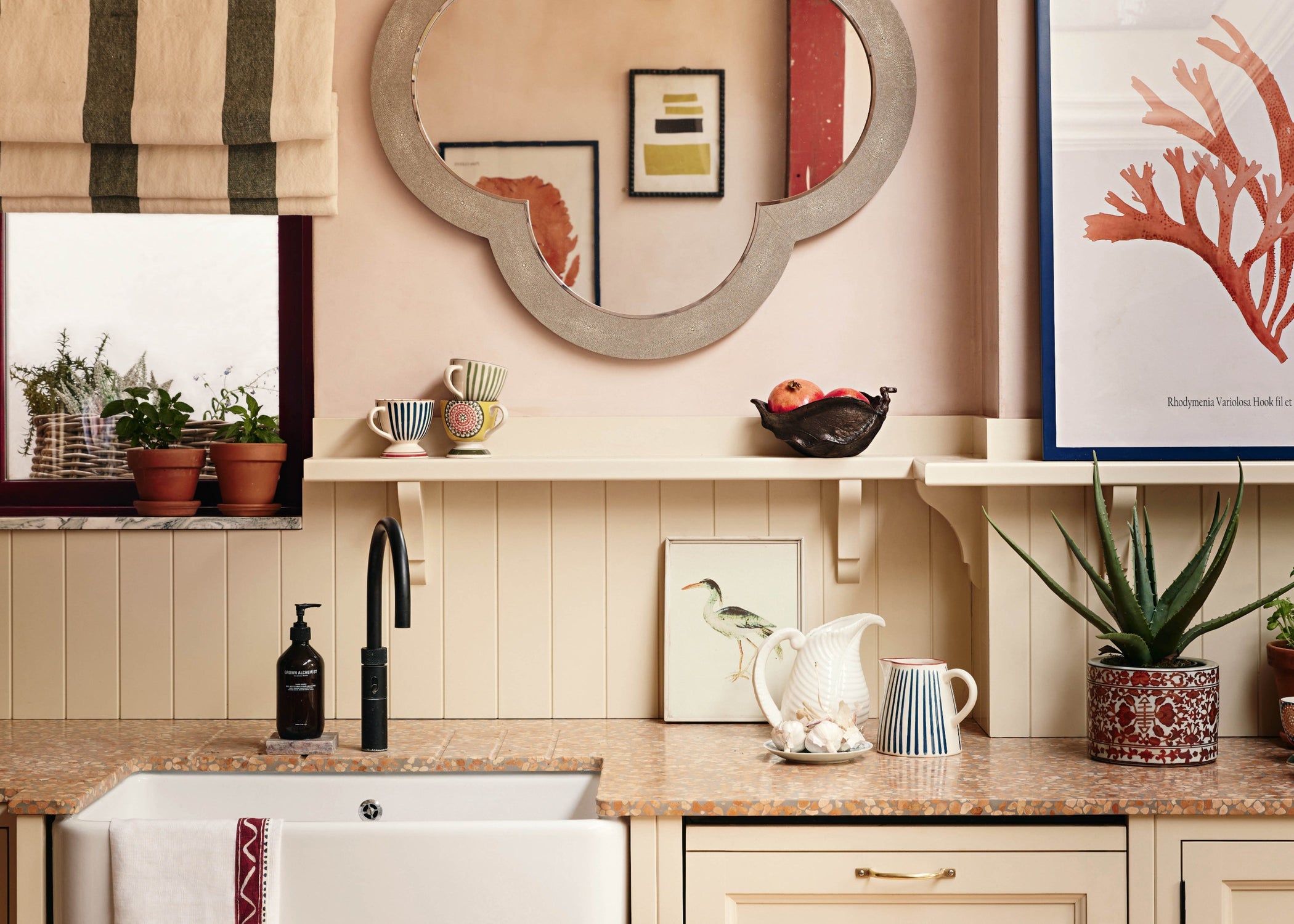
5 November 2025
The OKA Christmas Gift Guide 2025
It can be hard to know what to buy loved ones every year, whether friends or family, especially those who...


Published 11 November 2025 | Last Modified 5 December 2025


Celebrate the season in style. From exquisite table settings to statement pieces for every gathering, explore our festive edits and hosting guides designed to elevate every moment at home.

5 November 2025
It can be hard to know what to buy loved ones every year, whether friends or family, especially those who...

6 May 2025 | Emily Sims
Get your home ready with these five considerations that will make the festivities more special than ever.

13 February 2025 | Alexandra Grange
Follow our step-by-step guide to a fabulously decorated tree, whatever your hall-decking style.

13 January 2025 | Ellen Millard
Create a warm welcome with these festive decoration ideas – from ambient lighting to staircase styling.

9 December 2025
From organic shapes to hand-painted ceramics and natural textures, we believe in only crafting timeless designs that tap into enduring...

9 December 2025
Whether you go all-out by decorating the whole house and hosting the entire family, or simply add a touch of...

25 November 2025
In the words of our Co-Founder and Creative Director, Sue Jones, “Whether you go all-out by decorating the whole house...

11 November 2025
At Christmas, the table is more than a place to eat – it's where memories are made. From the first...

5 November 2025
It can be hard to know what to buy loved ones every year, whether friends or family, especially those who...

21 October 2025
Ten years after collaborating with our Interior Design Service, international client Mrs. Symth once again returned to OKA when it...

17 October 2025
Sometimes, the smallest details can make the biggest difference, especially when it comes to welcoming friends and family over a...

10 October 2025
How to Create a Multi-Purpose Room Now, more than ever, our home needs to work as hard as we do,...

9 October 2025 | Emily Sims
Get creative with your table decorations for Halloween, using the seasonal colours of orange, purple and green.

6 October 2025
It’s easy to surround yourself with nature in the summer, when you can get out into the garden, entertain al fresco...

6 October 2025 | Ellen Millard
Interior Designers Sophie Stevens and Lisa Mitchell share their tips for achieving a warm and inviting glow.

16 September 2025
Autumn is upon us, and with it a chance to take stock and rest up in a bedroom that’s as...

2 September 2025
Cooler days and darker nights call for indulging in home comforts, whether that’s curling up on a comfortable sofa or...

22 July 2025
Be the first to step inside the stylish London townhouse of Binky Felstead – TV personality, entrepreneur and influencer – who collaborated with our Interior Design Service to create a comfortable home for her evolving family.

9 July 2025 | OKA Correspondent
Throwing open the doors to entertain in the garden is one of the most joyful things about summer, whether simply...

23 June 2025 | OKA Correspondent
Not sure what type of sofa to buy? Our guide is here with all the information you need, from measuring up to choosing a style and colour.

22 May 2025 | Ellen Millard
Everything you need to know ahead of the RHS Chelsea Flower Show 2024, from dress codes to dining destinations.

16 May 2025 | OKA Correspondent
From solo stems to bountiful bouquets, there’s nothing like a bunch of flowers to lift the look and feel of...

14 May 2025 | Ellen Millard
From the perfect outdoor accessories to ambient lighting ideas, these tips and tricks will help you get your garden set for the long weekend.

13 May 2025 | Ellen Millard
If arranging cushions gets you all in a fluster, just follow these six simple tips from our Interior Design team.

13 May 2025 | OKA Correspondent
Sunshine is on its way, and with it comes plentiful opportunities to soak up its glorious rays. When the weather...

13 May 2025 | OKA Correspondent
Armchairs combine comfort and style. With so many different styles, how do you find the best option for your needs? Read our guide to find out.

13 May 2025 | OKA Correspondent
Out of office but working from home? Follow these inspired design ideas to achieve that much-coveted work-life balance.

13 May 2025 | Emily Sims
Enjoy the holiday feeling at home by bringing the bright and breezy aesthetic of the Mediterranean to your interiors.

13 May 2025 | Alanna Freeman
Wondering which dining table shape is best suited for your room? Whether you have a small space or larger space, our guide explains it all.

13 May 2025 | Jess Evans
Find the right design for your space with our practical tips on everything from size to shape.

13 May 2025 | OKA Correspondent
We delve into the details, with the measurements, shapes and materials to consider when shopping for dining chairs.

13 May 2025 | Emily Sims
Discover how to create your very own summery country retreat as demonstrated in this delightful Hampshire manor house.

13 May 2025 | Alexandra Grange
Discover the setting of our Spring Collection's latest look, located in the heart of Ashdown Forest.

13 May 2025 | Ellen Millard
Discover our tips for bringing this classic pattern into your home, from upholstery to soft furnishings and artwork.

13 May 2025 | Emily Sims
Create a relaxing atmosphere inside and outside your home with a tonal colour palette, geometric pattern and thoughtful furniture choices.

13 May 2025 | OKA Correspondent
We'll let you in on a secret: it all depends on how much space you have and how regularly you host.

13 May 2025 | Ellen Millard
Organic materials breathe new life into this period property, where earthy textures and tones take centre stage.

13 May 2025 | Ellen Millard
Practical rooms don't need to scrimp on personal style. Bring your character to the fore with these tips and tricks for a charming and inviting space.

13 May 2025 | Jess Evans
Embrace the new season with a good declutter, fresh colour palette and plenty of florals.

13 May 2025 | Ellen Millard
To create a sense of occasion for your Easter feast, check out our stylish seasonal table décor ideas.
Showing 36 of 138 items
Load more articles